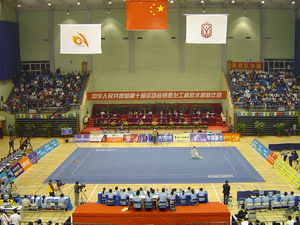Like whole numbers, fractions obey the commutative, associative, and distributive laws, and the rule against division by zero.
Equivalent fractions
Multiplying the numerator and denominator of a fraction by the same
(non-zero) number results in a fraction that is equivalent to the
original fraction. This is true because for any non-zero number

, the fraction

. Therefore, multiplying by

is equivalent to multiplying by one, and any number multiplied by one
has the same value as the original number. By way of an example, start
with the fraction

.
 , the fraction
, the fraction  . Therefore, multiplying by
. Therefore, multiplying by  is equivalent to multiplying by one, and any number multiplied by one
has the same value as the original number. By way of an example, start
with the fraction
is equivalent to multiplying by one, and any number multiplied by one
has the same value as the original number. By way of an example, start
with the fraction  .
.

